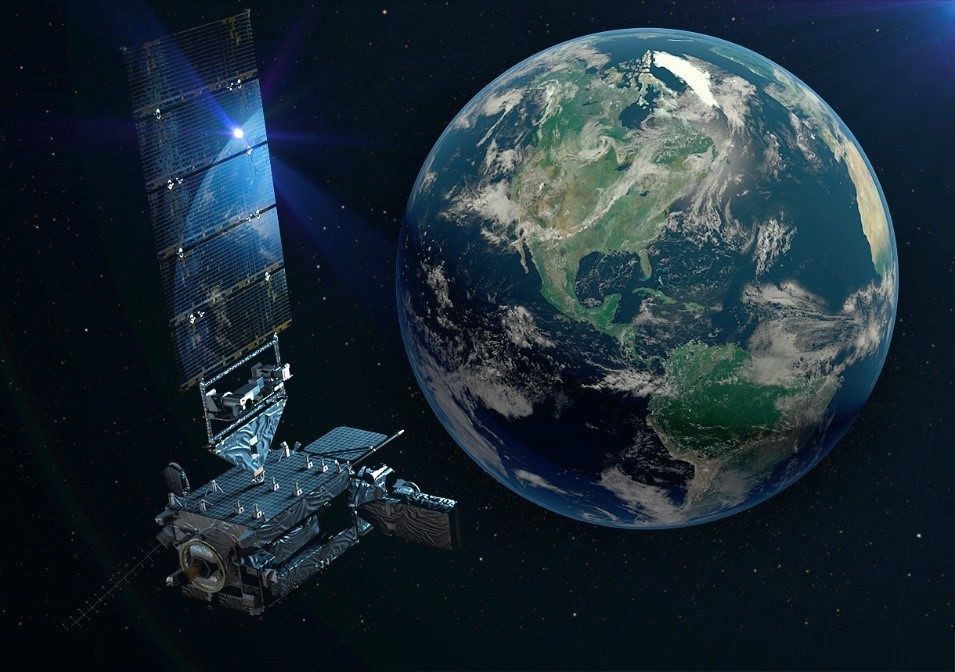
WASHINGTON — One of the largest U.S. arms makers, Lockheed Martin, is seeing growing demand for space technologies from U.S. military allies overseas. But selling to these customers is becoming more difficult for American companies due to policy and security barriers, a senior executive said.
Some of the U.S. closest allies “have increased the pace of space acquisition tremendously over the last year,” Eric Brown, Lockheed Martin’s vice president for mission strategy and advanced capabilities, told SpaceNews.
Many of these investments are in satellites, sensors and other technologies to protect assets in orbit, Brown said. Lockheed Martin and other U.S. firms have products to fill these demands but are running into roadblocks because of restrictions on the sale of U.S. space technologies to foreign allies, Brown said.
The U.S. military has several cooperation and intelligence sharing agreements with allies but that collaboration doesn’t usually apply to acquisition programs, Brown said.
“We’re at an unprecedented period of time in terms of allied demands and requirements for space capabilities that are sovereign,” he said. “We’re seeing greater collaboration among nations from a military and operational perspective. But frankly, policy and security are having a difficult time keeping pace,” he added. “It is a huge issue.”
In conversations with allied military officials, Brown heard concerns that they’re not able to field systems that are interoperable with the U.S. which makes it difficult to work as a coalition.
While substantive discussions are taking place among countries on space security and joint operations, “we’re talking about capabilities that our allies can’t actually procure from U.S. companies,” Brown said.
Agreements have been signed to coordinate operations, “and now we need to extend that into acquisition so that we can jointly develop and collaborate on building those capabilities, not just talk about the capabilities we’d like to have in the future.”
‘Allied by design’
The office of international affairs at the Space Systems Command has advocated for the development of joint systems with allies, an initiative called “allied by design.”
“‘Allied by design’ encourages the development of integrated defense space systems and systems-of-systems from their inception,” according the Space Systems Command.
Brown said these initiatives show “there’s a lot of energy, a lot of desire in the U.S. government” to work more closely with allies on space programs.
The defense industry has to comply with International Traffic in Arms Regulations, or ITAR, that restrict and control the export of defense and military technologies. In discussions about space systems, there are also many areas that are classified and only can be discussed with officials who have clearances.
Brown said classification is “the most substantial issue precluding coordinated development of ‘protect and defend’ capabilities with our allies.”
U.S. companies that typically work with allies under the Foreign Military Sales program work through the ITAR process but encounter a different set of obstacles with space systems, said Brown.
Before an FMS sale is approved, U.S. industry engages with foreign governments for months or years to offer insights into the “art of the possible” and to refine the requested solution from allies to best meet their needs, Brown said.
“In the case of space superiority capabilities, though, U.S. industry is frequently unable to have detailed discussions given the highly classified nature,” he said.
Brown noted that he’s not advocating for lower security levels. “I am suggesting that we need the means — both in policy and infrastructure — to collaborate at appropriate classification levels with allies.”
Lockheed Martin was recently selected as the “preferred bidder” in a multibillion-dollar Australian military project to build military communications satellites and supporting infrastructure. The company also is expanding its footprint in the U.K. space sector.
These countries are actively seeking suppliers and collaboration with the U.S., said Brown. “However, the needed authorities for defense space acquisition collaboration are not yet as mature as they are for other domains.”
The Space Systems Command’s international affairs office is working with allies and with private industry, but it’s unclear who has the authority to allow the sharing of specific information during discussions with allies, Brown added. “Seemingly no one can definitively identify who is empowered to say ‘yes’ below the 4-star level, but anyone can seemingly say ‘no.’ This decision authority factors into ITAR decisions as well.”
International space programs
The Space Systems Command has touted recent partnerships on international programs, such as deploying U.S. military communications payloads on Space Norway satellites, and U.S. space domain awareness payloads on Japanese navigation satellites.
These programs are “excellent in building connections across allies,” Brown said. “But they are not quite to the point of true joint capabilities.”
President Biden last month asked Congress to add Australia as a “domestic source” under the Defense Production Act. “That may be a first step toward achieving more substantive development of joint space capabilities,” Brown said.
Countries like Australia and the U.K. are motivated to support their domestic industries, he said, but “lowering barriers to collaborating across industry allows the combined industrial base to propose capabilities that capitalize on each nations’ technological strengths rather than combining piecemeal capabilities.”
Related
ncG1vNJzZmiroJawprrEsKpnm5%2BifLZ50mabnp6Vo8CmecKopKmZnp6ytHnFoqWdZaKkrqWuy6iapKtdnrtuv8Slo6Kml2LAsa3CnmStnZOdu7C4zqCgnqtdqbxurculoJ6rXw%3D%3D